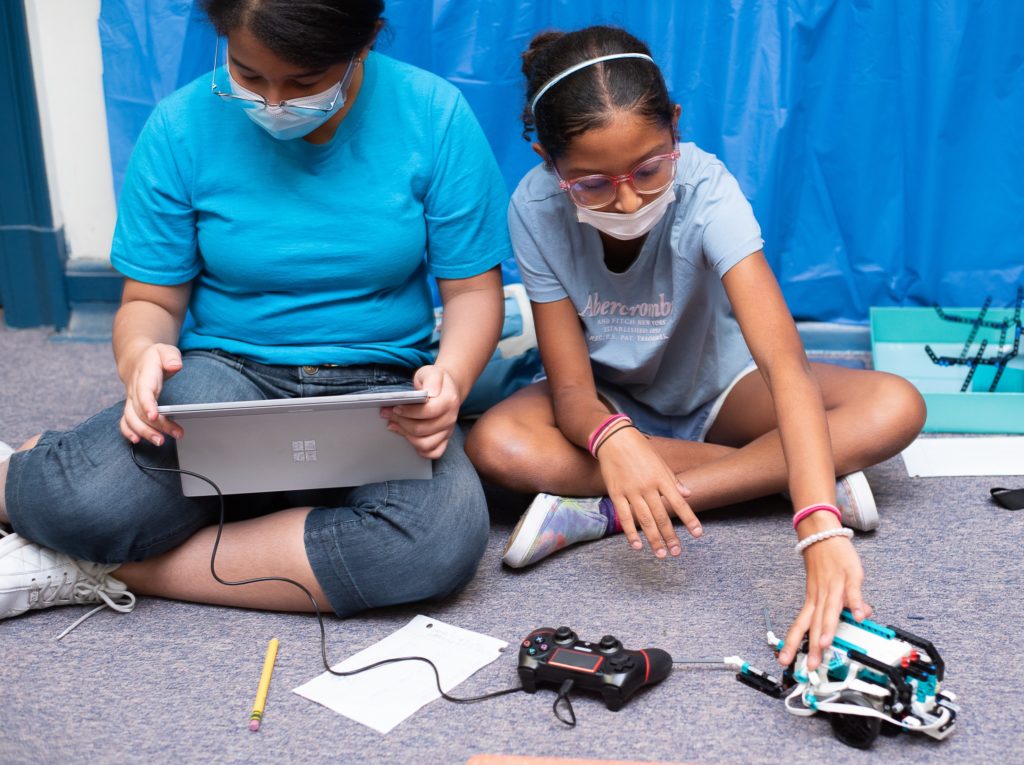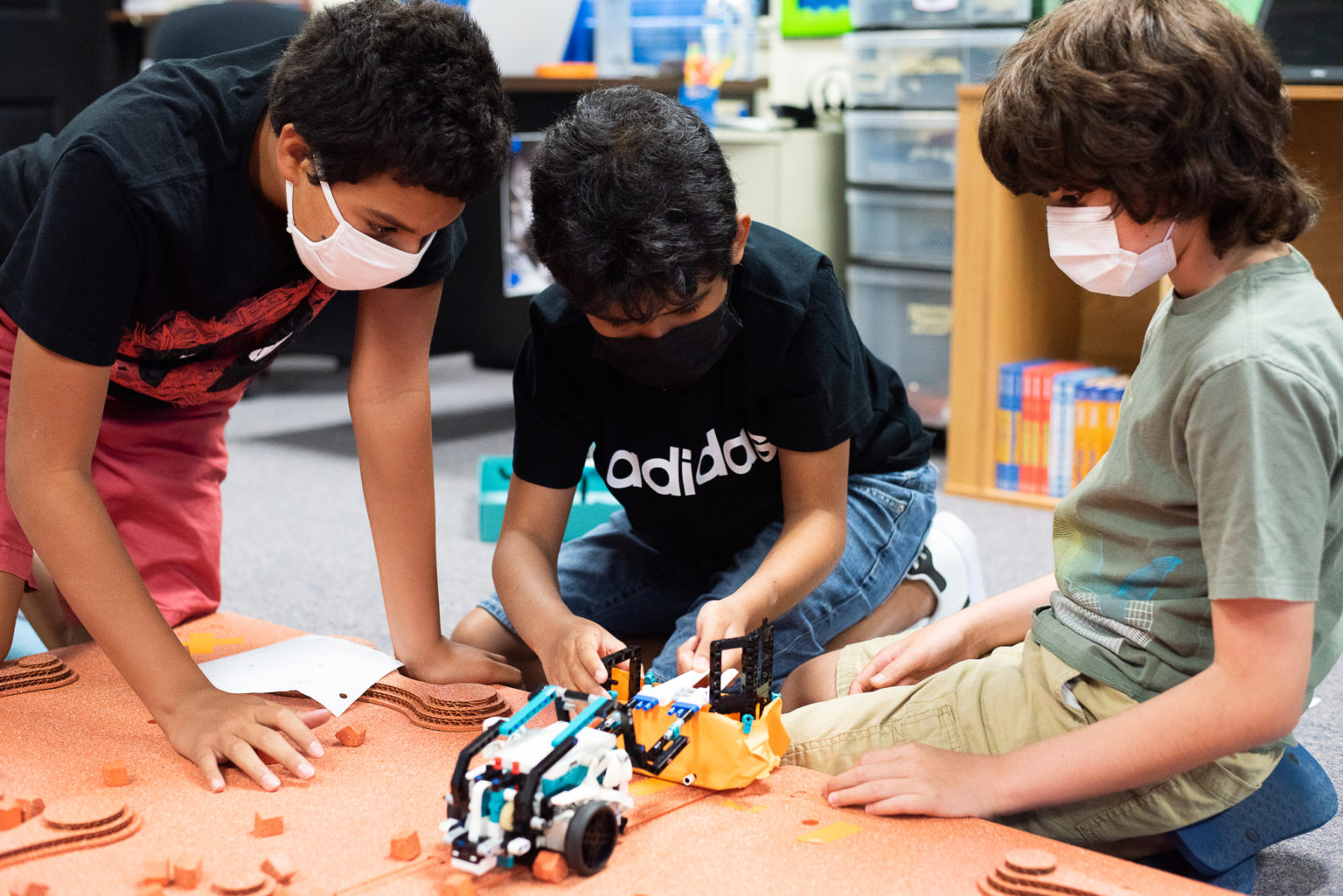Okay, we don’t actually have anything to do with the Perseverance rover on Mars. But we are making it possible for students like the ones shown here to learn about planetary exploration, robotics, and computer programming.
This summer, 15 middle-school children from Catholic Partnership Schools (CPS) in the Camden area took part in the Mars Exploration Summer Course. We thought the program was so awesome that we’re funding its expansion for the fall.
In the summer program, teams of three students each took on the job of programming a small robot to navigate a model of the Martian landscape. They had specific goals, ranging from collecting soil samples and looking for signs of life to rescuing a stranded astronaut.
At the end of the two-week program, students showcased their work for their families. Each group put its robot through its paces. All the groups completed their missions—to the cheers of their families and other students.
“The Mars Exploration program infuses learning into a fun, engaging environment where students use math, science, and engineering concepts in a real-world application,” said Danel Joyce, the program’s lead teacher.
Students used Microsoft laptops—which we donated to CPS—to program their robots, using a real-world computer science concept known as “block coding.” In addition to learning programming and robotics concepts, they practiced their teamwork and problem-solving skills.
Students also learned one of the most important concepts in engineering and in life: the importance of perseverance! (Yes, pun intended.) Ms. Joyce said, “It has been quite rewarding to witness [the students’] dedication to solving a challenge where they fail and fail again, only to successfully accomplish the task with much cheering and excitement.”
Jameka McGraw-Byrd, Executive Director at CPS, pointed out that this kind of science learning is not available to most CPS students. The cost of the laptops, robots, and materials puts this work well beyond the means of many families. In the Mars Exploration program, each team of three students had their own laptop and robot. “We are incredibly blessed to be able to offer this unique learning tool to the students of Catholic Partnership Schools thanks to generous donors such as the Domenica Foundation.”
Ms. McGraw-Byrd also cited the longer-lasting benefits of this program: “We believe students in the program will have improved confidence in coding and programming and will be more aware of the many career opportunities available to them in the STEM fields.”
“This is the kind of innovative program we like to support,” said Elena Piperno, Domenica Foundation director. “It gives students learning opportunities they would never get at home or even in school.”
“And it gets them excited about learning!” she went on. “Kids who probably never would have considered careers in programming or robotics now know what success in those fields feels like.”
To give more students the chance to experience this success, we’re supporting CPS to expand Mars Exploration to three more schools, in addition to St. Joseph Pro-Cathedral School where the summer course took place. With this funding, 500 students will be able to participate in an afterschool program that teaches them vital STEM skills they aren’t likely to learn elsewhere.
“People from low-income backgrounds are underrepresented in STEM fields,” said Elena. “We’re giving these kids a chance to see what they can do with a computer and a robot—and how much fun they can have doing it!”


